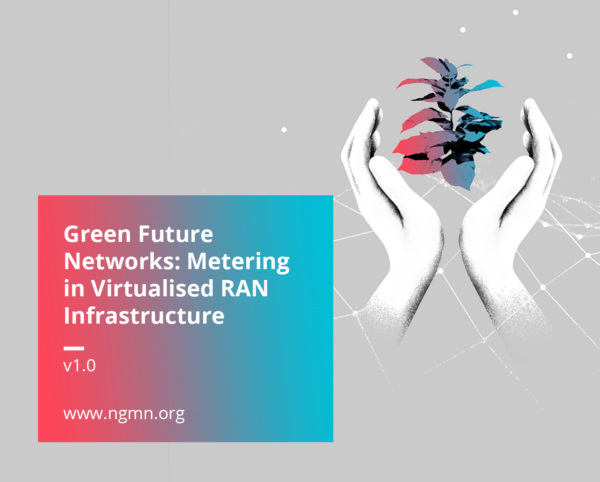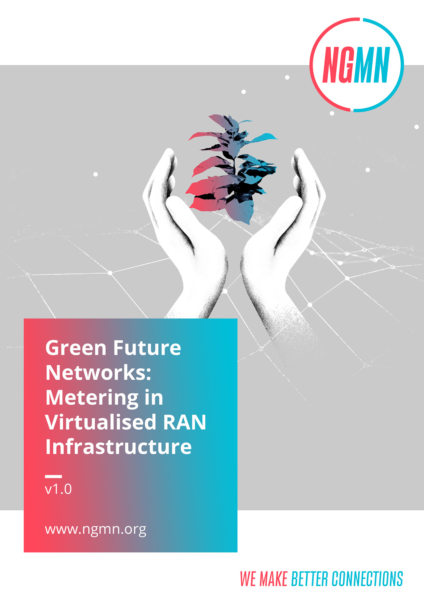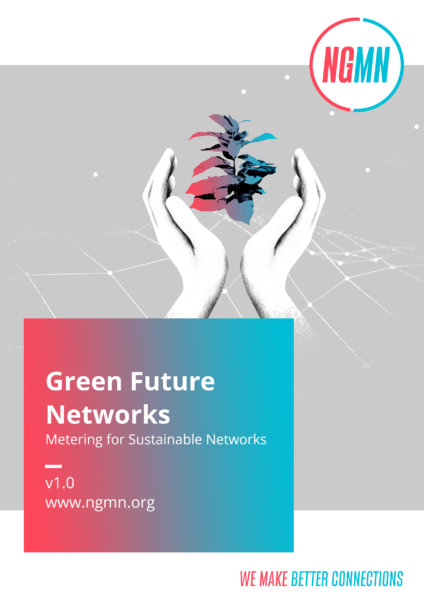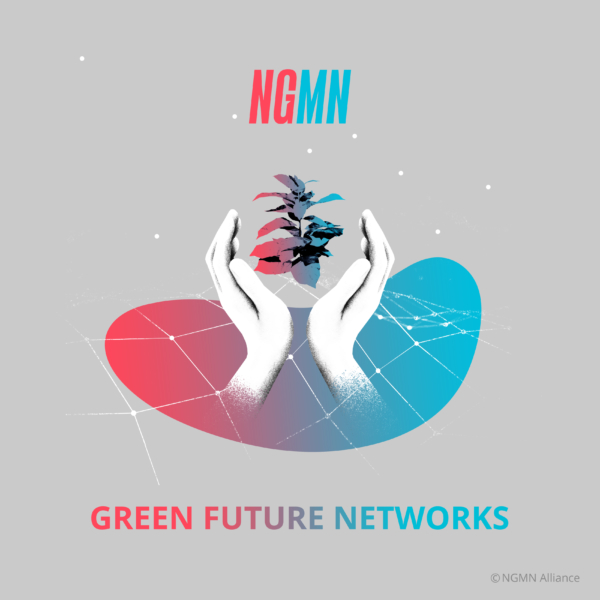Dusseldorf Germany, 04 April 2024.
Today’s publication by the Next Generation Mobile Networks Alliance (NGMN), titled ‘Green Future Networks: Metering in Virtualised RAN Infrastructure,’ offers key recommendations to the industry regarding the measurement of energy consumption in virtualised RAN networks. The publication was jointly developed by the NGMN membership, including Mobile Network Operators (MNOs), vendors and research institutes.
“Addressing the challenge of managing and minimising energy consumption is paramount within our industry,” remarked Arash Ashouriha, Chairman of the NGMN Alliance Board and SVP Group Technology at Deutsche Telekom. “Through this publication, the NGMN Alliance delivers vital recommendations for industry standards, facilitating more precise and real-time estimations of energy consumed by virtualised or cloud-native network functions.”
“Sustainability is a considerable concern for MNOs and their customers,” emphasised Laurent Leboucher, Member of the NGMN Alliance Board and Group CTO at Orange. “Accurate measurement of energy usage in our networks and associated carbon emissions is essential. This publication marks a crucial stride towards fostering greater transparency in energy consumption within virtualised infrastructure.”
This latest NGMN publication highlights the necessity of enhancing current 3GPP Virtual Network Function (VNF) / Cloud Network Function (CNF) energy consumption estimation frameworks for more precise measurement of energy consumption by VNF/CNF on shared IT/Cloud infrastructure. The publication offers several recommendations to Standards Development Organizations (SDOs) to accelerate the development of enhanced frameworks.
Additionally, the publication underscores the potential of utilizing Redfish® by DMTF (Distributed Management Task Force) along with open-source tools like Kepler (Kubernetes-based Efficient Power Level Exporter) and Prometheus. This combination enables MNOs to perform network-wide, real-time, and accurate estimations of IT-infrastructure performance and power consumption. These estimations are regarded as accurate enough to be effectively considered as ‘measurements’.
The publication emphasises that operating models will influence MNOs’ ability to manage the performance and energy consumption of vRAN functions. It suggests that APIs between Cloud Service Providers (CSPs) and MNOs may need to replace standardised FCAPS (Fault, Configuration, Accounting, Performance, and Security) interfaces if not exposed by the CSP.
“Bringing together the industry to tackle our shared challenges, unlocking opportunities and providing crucial guidance to the industry is NGMN’s core mission,” stated Anita Doehler, CEO at NGMN Alliance. “This publication further advances the industry’s capacity to deploy disaggregated, virtualized and cloud-native architectures, all while effectively managing energy consumption and environmental impact.”
The publication can be downloaded from here.
The collaboration between NGMN’s partners helps drive the most important subjects in the industry today, including NGMN’s Strategic Focus Topics: Mastering the Route to Disaggregation, Green Future Networks and 6G. NGMN invites all parties across the entire value chain to join the Alliance in this important endeavour.
Further information and all NGMN publications can be found on the website at ngmn.org.
About NGMN Alliance
The NGMN Alliance (NGMN) is a forum founded by world-leading Mobile Network Operators and open to all Partners in the mobile industry. Its goal is to ensure that next generation network infrastructure, service platforms and devices will meet the requirements of operators and ultimately will satisfy end user demand and expectations. The vision of NGMN is to provide impactful industry guidance to achieve innovative, sustainable and affordable mobile telecommunication services for the end user with a particular focus on Mastering the Route to Disaggregation / Operating Disaggregated Networks, Green Future Networks and 6G, whilst continuing to support 5G’s full implementation.
NGMN seeks to incorporate the views of all interested stakeholders in the telecommunications industry and is open to three categories of participants/NGMN Partners: Mobile Network Operators (Members), vendors, software companies and other industry players (Contributors), as well as research institutes (Advisors). NGMN invites all parties across the entire value chain to join the Alliance in these important endeavours.




